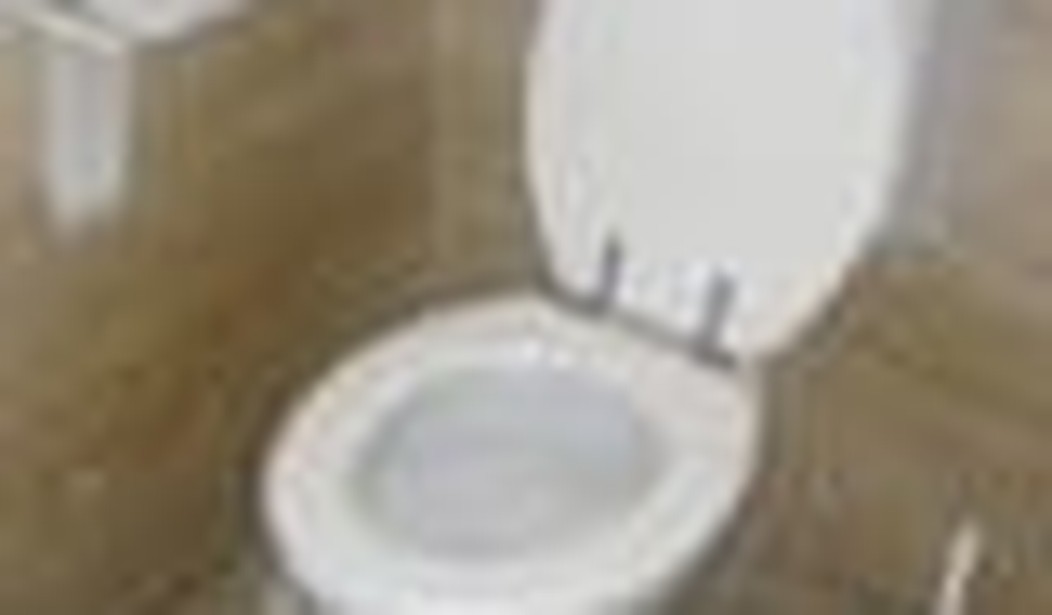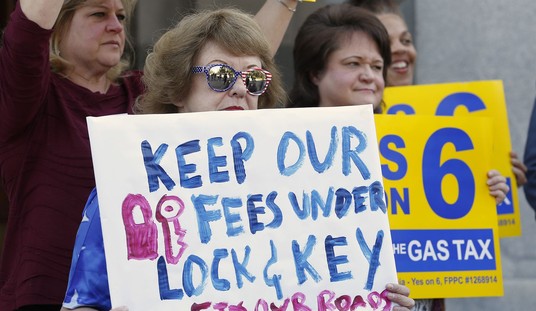President Obama, whom lots of folks are disappointed in and who many now think is no better than his predecessor, has problems beyond Massachusetts. However, “El Presidente” Hugo Chávez of Venezuela has far worse problems, at least for now. And so does Venezuela.
This gets it about right:
Like the emperor in the fairy tale, the Chávez administration now stands naked before the world and is finding it increasingly difficult to cover up the disaster it has created with its ill-named 21st century socialism.
There is a trend in Latin America, and it favors free market capitalism rather than “Bolivarian socialism.” As suggested in previous articles (here, here, here, and here), Chávez’s ship is on the rocks, getting clobbered by twin storms, and may soon be crushed.
On January 8, Chavez announced a substantial devaluation of the Venezuelan currency (the bolivar fuerte). His stated purpose was to reduce Venezuelan reliance on imported goods, and thereby to stimulate the economy. As with so many of his schemes, the effects will be counterproductive and very unpleasant for most of the people living in Venezuela.
Venezuela’s official exchange rate had been 2.15 bolivars to the dollar. Due to the January 11 devaluation, the bolivar trades at 2.6 to the dollar for priority transactions and 4.3 to the dollar for other transactions:
The higher rate doubles the paper value of oil earnings when converted to local currency. Oil accounts for about half the budget, but that income has been squeezed by lower world oil prices and declines in output in the past year.
The president … said the adjusted currency rates aimed to boost the economy by encouraging local manufacturing of items such as clothing and shoes, which Venezuela mostly imports.
“This is going to generate greater productivity in Venezuela!” Chávez said in his televised speech.
Chávez also stated:
Last year we imported 90-million pairs of shoes, for the love of God. … We can make all of that ourselves!
That certainly is a lot of shoes for a poor country with a population of 26,814,843 — roughly 3.4 pair for each man, woman, and child, imported in one year. Imelda Marcos must be living incognito and very happily in Venezuela.
The 4.3 BF to the dollar rate applies, among other things, to imported vehicles, telecommunications goods, computers, appliances, alcohol, and tobacco. It also applies to substantial portions of the raw materials imported by local manufacturers. However, it does not apply to whale sperm, pickles, and the pain reliever codeine, which will be considered essential goods. (Whale sperm is allegedly a good hair conditioner.) Currently, the informal (black market) exchange rate is at 5.80 BF to the dollar; it will probably get worse.
Finance Minister Ali Rodriguez acknowledged that the devaluation should add 3 percent to 5 percent to inflation this year. That is almost certainly a low-ball guesstimate, and inflation in Venezuela is already the highest in Latin America and the highest of the seventy-eight countries tracked by Bloomberg. On January 15, Chávez announced a twenty-five percent increase in the national minimum wage (10 percent in March and 15 percent in September, coinciding with the September national elections) to blunt the estimated “3 to 5 percent” increase in inflation over 2009 which was “only” 25.9 percent. Not great, but better than Zimbabwe, where prices double daily.
Announcement of the devaluation did have one immediate stimulating effect. Stores selling electronic and other imported goods were jammed with customers seeking to buy them before the prices doubled. El Presidente promptly called upon the National Guard to deal with shopkeepers engaged in “speculation” by raising prices, and announced that he would nationalize businesses which do such things. He said that he “will take over shops and give them to workers if price rises are uncovered.” The National Guard obeyed, and as of January 17 more than a thousand shops had been closed at least briefly.
On January 17:
President Hugo Chávez … ordered the expropriation of a French-owned hypermarket chain that operates close to a dozen stores in Venezuela, accusing it of price speculation following the country’s currency devaluation.
Chávez said his government would seize control … after lawmakers approve legislation allowing the expropriation of businesses that have raised prices inordinately.
María León (minister for women and gender equality) announced that an “army” of 200,000 men and women were to be “mobilized” in “brigades” to back up the government’s crackdown on errant shopkeepers. “We can’t accept speculation any more,” she declared.
Of course, some “good” things may well come from the devaluation:
The deficit will equal 3.2 percent of gross domestic product this year, rather than the 7.4 percent of GDP it would have equaled without a devaluation, according to RBS forecasts. The revenue windfall will help Chávez boost spending 30 percent ahead of congressional elections in September.
That assumes, of course, that the inflation monster will not roar too loudly. Nevertheless, accounting magic is wonderful to behold; votes are precious and should not be bought and sold cheaply.
Not strangely, Chávez’s view of the future seems less rosy than at any time in the past, in part due to the financial difficulties but also due to problems with the generation and distribution of electricity. The failure on January 15 of anyone to show interest in development of Venezuela’s substantial natural gas reserves probably did not brighten his mood.
In response to severe water and power shortages, business, industry, and even government offices have been required to curtail their activities. Rolling power blackouts were instituted on January 8 but were lifted just twenty-four hours later in Caracas only; it has been suggested that folks in the provinces, where the blackouts continue, may not be happy with that. In any event, a “better” plan is in the works and the electricity minister has been fired since it was all his fault.
These problems are almost certain to damage the Venezuelan economy even more:
Economists fear that the rationing will plunge Venezuela still further into recession, after posting its third consecutive quarter of negative growth last month. The economy contracted 2.9 per cent in 2009 even as most other countries in the region began to recover from the global downturn. …
Energy experts reject President Hugo Chávez’s claims that … El Niño is to blame for the mounting electricity crisis. They accuse the government of mismanaging the sector, arguing that more than a decade of underinvestment and a failure to maintain existing infrastructure are at the root of the problem.
Victor Poleo, a former vice-minister for electricity under Mr. Chávez, believes corruption is the reason for less than a third of the funds assigned to electricity projects reaching their intended destination. The wastefulness of consumers and high economic growth in recent years have exacerbated the problem. (emphasis added)
“High economic growth?” Not in Venezuela.
Although it had been suggested that Chávez might personally shoot at passing clouds from the presidential mansion using equipment provided by weather experts in Cuba, that seems not to have worked. Still, none of this is the fault of El Presidente:
[Chavez and] the government … [have done all they could] to alleviate the crisis … including sending air force jets to fire “rays” into clouds in an attempt to induce rain. Pilots had been “risking their lives” doing this for months.
Chávez … blamed the “Fourth Republic” — the era before his own advent on the scene … for deficiencies in the power system. They were to blame for making the country dependent on the Caroni Basin for over 70 percent of its power supplies. If the Opposition had its way, the earthquake in Haiti would be his fault, he said.
Blaming El Niño and excessive consumer usage is absurd:
… when one sees just one photo of the broken down turbines at Guri or at Planta Centro Power Station or reads the reports warning of the gravity of the situation that different specialists have been submitting for years.
It’s been only slightly more than a decade — less than a fleeting second in geological terms — since Chávez came to power, so he may have a point.
It seems probable that a tipping point has been reached, and that the consequences of inadequate electric power may be disastrous for the economy — unless the Air Force cloud bombardment with “rays” works or unless Chávez imports “Native American rain dancers from New Mexico or Arizona, or ask[s] indigenous Shamans from the Amazon to wake up the rain gods.”
Desiring that his countrymen not be distracted by these domestic problems, El Presidente continues to strengthen Venezuela’s military presence on the border with Colombia:
Chávez secured a $2.2 [billion] loan from Russia during his visit to Moscow last September for the purchase of 92 T-72 main battle tanks, an undisclosed number of Smerch multiple launch rocket systems (MLRS), and a variety of air defense systems, including the advanced S-300 complexes.
All of this is said to be necessary because the United States is preparing to attack Venezuela to steal its oil. Still, Chávez recently indicated that he would like to have a dialogue with the United States, which may take him up on it. Chávez accused the U.S. on January 17 of occupying Haiti on the pretext of delivering aid (France made a similar claim). Chavez claims that on January 8, Venezuelan fighter jets drove a U.S. observation aircraft from Venezuelan airspace back to the Netherlands’ Caribbean islands. Now, the Netherlands is in on the scheme along with the United States and Colombia (where, unlike in Venezuela, oil production is now the highest in a decade). “The perceived threat of U.S. intervention has become a central element of Mr. Chávez’s political discourse and a rallying cry for his supporters.”
Despite his and Venezuela’s substantial problems, El Presidente has the situation well in hand. He has demanded that socialist soap operas replace capitalist soap operas on national television:
“A while ago, I was in Cuba and they broadcast soap operas there, not capitalist soap operas but with a social content, socialist” soap operas, Chávez told a group of filmmakers and scriptwriters guested on his weekly radio and television show, “Alo Presidente.” “I’m going to ask that we make socialist soap operas (in Venezuela), instead of capitalist ones.”
“We can also make good movies,” he added. “Not capitalist movies that are poison and incite our children to take drugs and even push them into crime.”
Not content with soap opera entertainment, Chávez has commandeered even cable television facilities for his lengthy and frequent cadenas. Hence, “when the harried Venezuelan worker comes home, s/he will not be able to escape Chávez through the solace of soap operas and silly game shows.”
What does all this mean? Venezuela is spiraling at an accelerating pace down the toilet under el Presidente Chávez, with all the drama of a “capitalist” soap opera. His ties with Iran are unlikely to do Venezuela any real good, the situations in Argentina and in Chile can’t be to his liking, and his reverses in Honduras have probably weakened him as well. His influence in Latin America is fading and he rather clearly needs to do something — just about anything — on the domestic front to avoid even a minor victory by the opposition parties. However, the domestic problems are out of control and despite the disorganized state of the opposition parties it seems unlikely that Chávez will succeed.
As Chávez put it in an article on January 18, “Homeland, Socialism, or Death!”









Join the conversation as a VIP Member